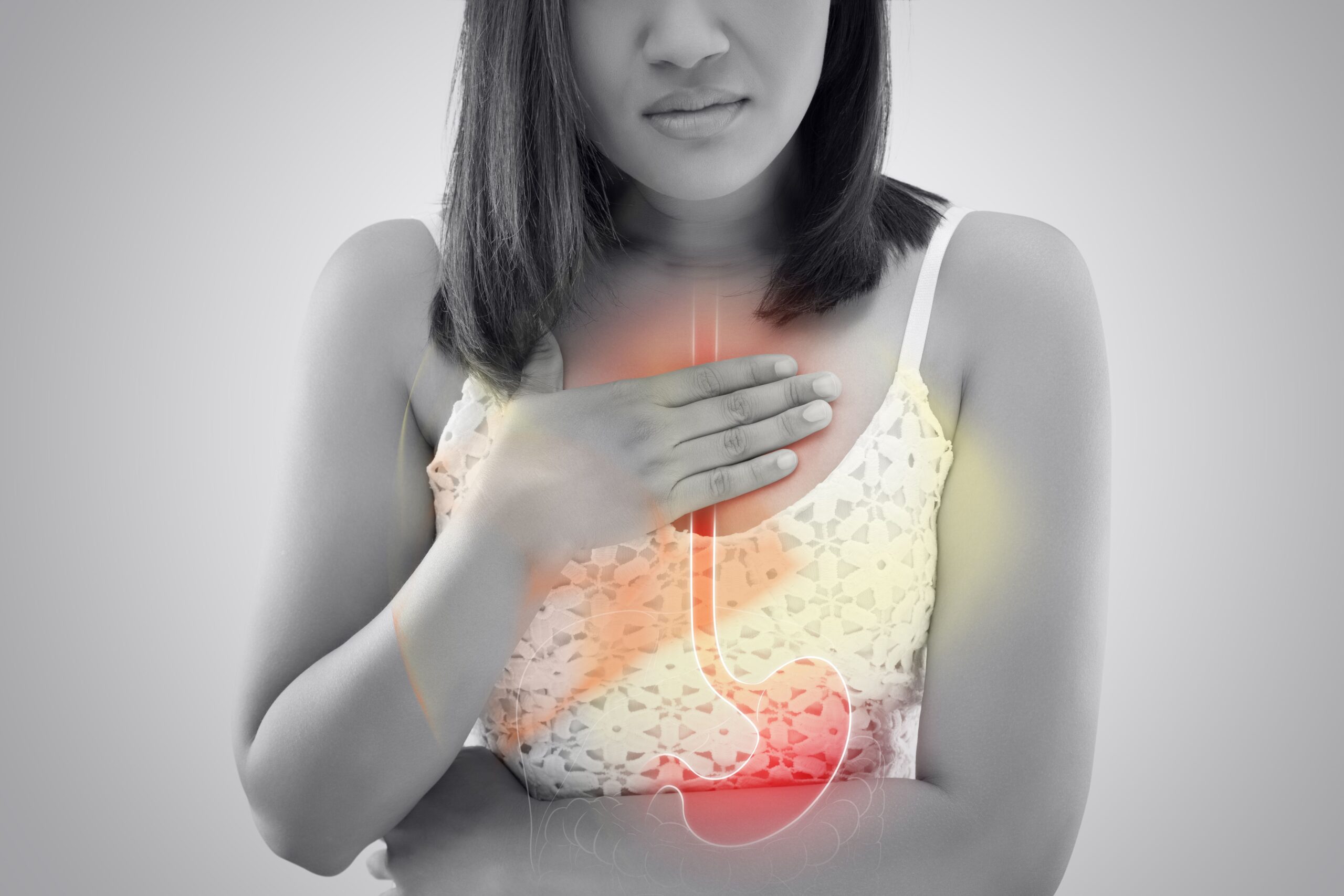Did you know indigestion is sometimes a lack of stomach acid and not an excess amount? Watch our video and learn if you may need to INCREASE your acid instead DECREASING it. Hi – Im Dr. Kyle Burton, Acupuncturist and Herbalist since 2006. Most people who experience indigestion or GERD - Gastroesophageal Reflux Disease, are put on an antiacid. We feel acidic so therefor it must be too much acid, right? Not necessarily. You can also experience indigestion from too little acid, and unfortunately the symptoms are the same. Several patients as they get older are prescribed medication for excessive acid. Although, as we get older, our bodies do not tend to produce too much of anything – except maybe nose and ear hair. Hormones decline, our immune system declines, our bones get less dense – we start to run low almost everything. So why is the stomach producing too much acid? Lets take a look at the stomach. The lower esophageal sphincter controls the opening and closing of the esophagus that connects to the stomach! When you are eating, your stomach releases acid which changes the pH level which triggers the valve to close! Now, if your stomach doesn’t produce ENOUGH acid, the valve is not triggered to close. With it staying open, and your food isn’t being broken down, you can experience that same feeling as if you had too much acid! Obviously if you’ve had too much acid (tomatoes, oranges) its too much. However, if you’ve had a large meal, especially high in protein, you may not have enough acid to break down all that food! So even though it may seem there is not too much acid, you may not have produced enough acid to trigger the valve to close! You might be asking how you know if you have too or too little acid. Obviously if you’ve had too much acid (tomatoes, oranges) its too much. However, if you’ve had a large meal, especially high in protein, you may not have enough acid to break down all that food! The lower esophageal sphincter controls the opening and closing of the esophagus that connects to the stomach! When you are eating, your stomach releases acid which changes the pH level and triggers the valve to close! The bigger the meal, the more acid you may need. As we age, we often don’t over produce anything – in fact, we tend to run low. Hormone levels lower, digestions slows, overall energy declines. So even though it may seem there is not too much acid, you may not have produced enough acid to trigger the valve to close! *How do you know if you have too much or too little acid? If you’ve eaten acid foods like tomatoes or citrus its most likely too much acid. Drink plenty of water to help dilute the acid and you can even add take a teaspoon of baking soda. Sodium bicarbonate neutralizes acid. Milk helps create a mucosal layer over the stomach to help protect the lining from the acid. Although dairy isn’t usually good for digestion strength, it can help if its severe! Okra also helps coat the stomach from acid if you can get past the taste! Too much acid can cause Barrett’s Syndrome, where the normal cells that line your esophagus change to resemble the intestines! When cells start to change, it can lead to cancer. Barrett’s esophagus can increase one’s risk to developing adenocarcinoma! If you want to try INCREASING your acid to see if helps REDUCE indigestion you can try a shot of apple cider vinegar! Like the vinegar in pickle juice, they are both acid and will increase the pH level in your stomach. You can also purchase HCL (hydrochloric acid) if you can’t stomach the taste of vinegar (pun intended!). If your indigestion gets better then you didn’t have enough acid. However, if your digestion got worse, refer to the above about baking soda. There are certain foods that commonly known to be acidic - and can weaken the stomach lining to where ANY acid is going to feel uncomfortable. If you are testing acid levels, you should avoid these foods to make sure the lining isn’t already too inflamed. Coffee, citrus, spicy foods, tomatoes, alcohol, chocolate, smoking, stress, fatty foods, overeating, laying down too soon after eating. It’s usually recommended not to lay down for the first two hours after eating. Sometimes you may experience acid even when you haven’t eat. Our digestion likes routine. Same foods, and same time of day. Sometimes it even anticipates food and will preemptively produce acid. If you haven’t eaten though, the acid isn’t going to feel great. You can drink water to dilute or also add the baking soda. Another reason is due to a h. pylori bacterial overgrowth in the stomach. The bacteria’s byproduct is acid and can irritate the stomach lining. Usually this is diagnosed from a breath test. The point of this blog is to let you know indigestion is not always due to excessive acids. Finding the root cause may prevent you from taking unnecessary medication and conspiring the side effects, it’s worth your time!


